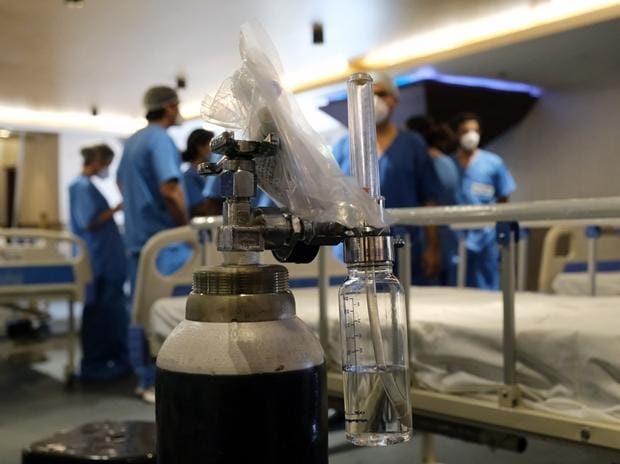Amid reports of shortage of medical oxygen in Maharashtra, Health Minister Rajesh Tope on Thursday said that each private hospital in the state with more than 50 beds should set up an oxygen generation plant to ensure availability of this life-saving gas for treatment of patients.
He said this in a press conference, where he shared a fresh set of instructions for hospitals.
"All private hospitals with more than 50 beds should set up an oxygen generation plant. These hospitals will no longer rely on the state government for the supply of medical oxygen, which can be provided to the COVID-19 patients," he said.
Hospitals with less than 50 beds have been asked to procure oxygen concentrators, which can increase the supply of oxygen to patients, the minister said.
"The technology of oxygen concentrators involves collection and purification of air up to 95 to 98 per cent before it is administered to patients. It is viable and affordable. It will reduce the load on the state infrastructure over procuring liquid medical oxygen from other states and supplying it to hospitals," he added.
He also admitted that there has been overuse of oxygen in treating patients.
The state COVID-19 task force members and experts have pointed out that the overuse of oxygen cylinders was creating a shortage of the life saving gas.
The current usage (oxygen) is 1,500 metric tonnes on a daily basis. As per the Centre's guidelines, Bhilai in Chhattisgarh, Telangana and industrial cities like Bokaro (Jharkhand), Rourkela (Odisha), Hazira and Jamnagar (Gujarat) are supplying oxygen to Maharashtra. A committee of commissioners of health and transport departments and the FDA has been set up. It is headed by the commissioner of health. It will coordinate with the states concerned and monitor the oxygen supply.
The nitrogen-supplying large tankers are being readied for oxygen supply. The first batch of 50 such tankers will be ready soon, which will carry liquid oxygen to Maharashtra, the minister said.
(Only the headline and picture of this report may have been reworked by the Business Standard staff; the rest of the content is auto-generated from a syndicated feed.)
 Dear Reader,
Dear Reader,
Business Standard has always strived hard to provide up-to-date information and commentary on developments that are of interest to you and have wider political and economic implications for the country and the world. Your encouragement and constant feedback on how to improve our offering have only made our resolve and commitment to these ideals stronger. Even during these difficult times arising out of Covid-19, we continue to remain committed to keeping you informed and updated with credible news, authoritative views and incisive commentary on topical issues of relevance.
We, however, have a request.
As we battle the economic impact of the pandemic, we need your support even more, so that we can continue to offer you more quality content. Our subscription model has seen an encouraging response from many of you, who have subscribed to our online content. More subscription to our online content can only help us achieve the goals of offering you even better and more relevant content. We believe in free, fair and credible journalism. Your support through more subscriptions can help us practise the journalism to which we are committed.
Support quality journalism and subscribe to Business Standard.
Digital Editor

RECOMMENDED FOR YOU